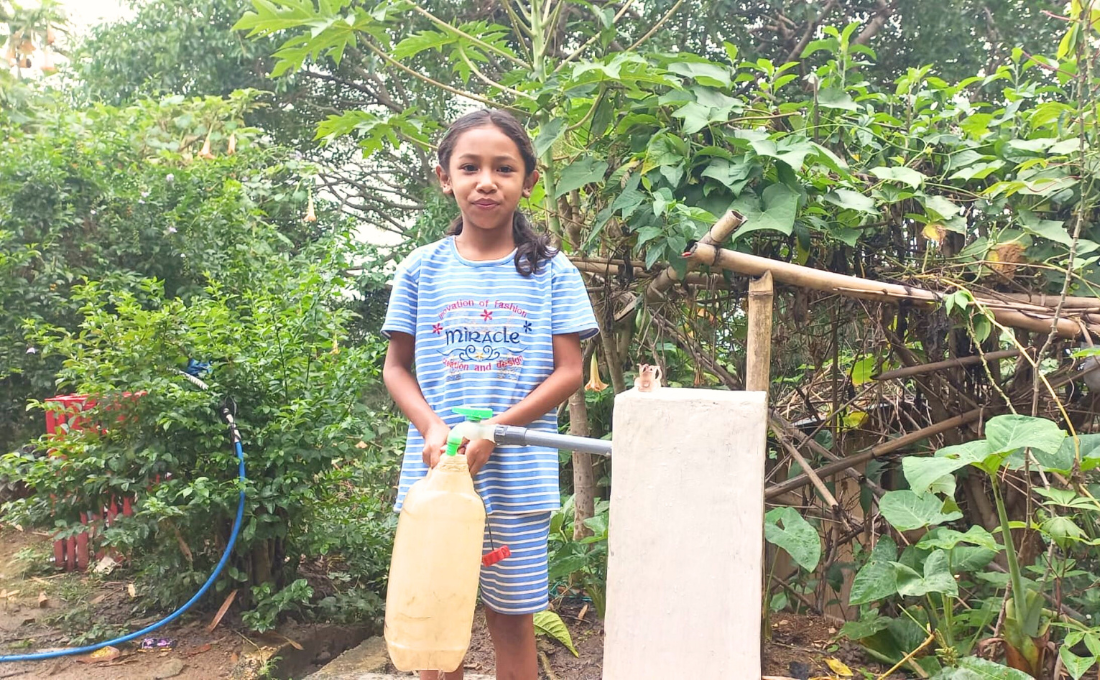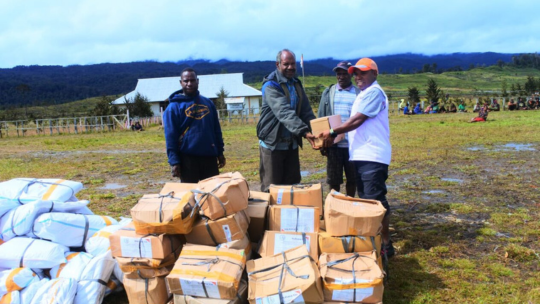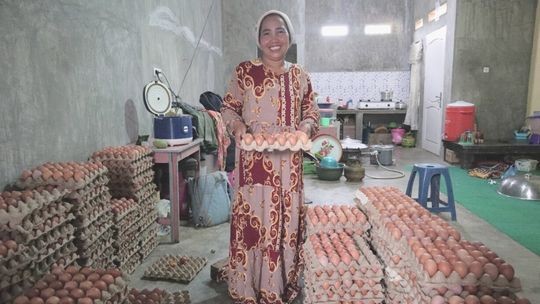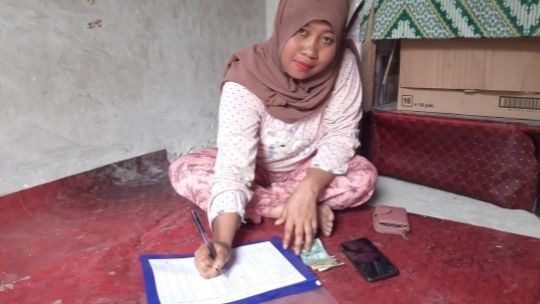Healthy and Clean Children with Access to Water at Home

Until 2023, a village in East Manggarai Regency relied solely on rainwater for their daily needs. During the dry season, they had to walk a kilometre to reach the nearest water source. Some even resorted to using puddle water at the peak of the dry season. Access to clean water was not enjoyed equally by all children and community members.
Several hamlets had clean water facilities built through government programmes. However, residents had to queue for hours to obtain water due to the minimal water volume. This led to numerous health problems, significantly impacting children's health.
Yosep, the Village Head, during an initial discussion with Wahana Visi Indonesia (WVI) and the Ruteng Diocese Children's Pastoral Team in 2023, stated, "In this village, we still face challenges related to the difficulty of obtaining clean water due to the limited number of springs. Even when springs exist, they are located lower than our village. So, people must go down directly to the springs or rivers to wash. This makes our village appear unclean and causes other social problems. Children also experience health issues, parents cannot ensure their children's hygiene, and vegetables planted around the house for nutritious food do not grow due to the water shortage." Indeed, water is a fundamental necessity for human life.
Given these numerous problems and concerns, the village leader, affectionately known as Pak Yos, invited WVI and the Ruteng Diocese Children's Pastoral Team to collaborate in helping the community overcome the difficulty of accessing clean water. "It's not that we can't build clean water facilities. We have village funds, and we, as the village government, are committed to doing it, but we need technical support. We hope WVI and the Ruteng Diocese Children's Pastoral Team can provide technical assistance to build a clean water pipeline. We face technical obstacles, such as the low location of water springs and other challenges. If we want to realise children's wellbeing, let's start by providing clean water access for all," he explained.
In early 2024, WVI, the Ruteng Diocese Children's Pastoral Team, and the Lawir Parish Priest, together with the Village Government, decided to collaborate and initiate the construction of a clean water pipeline based on community self-support. The primary goal was to ensure clean water reached all parts of the village.
Starting with community consultation meetings, the development of the clean water pipeline continued with the establishment and training of the Village Drinking Water Management Organisation (OPAM), facilitated by WVI. OPAM became responsible for the construction and future maintenance. The existence of OPAM is crucial because the clean water network originates from the community, for the community.
The construction process of the clean water network facilities was carried out jointly through mutual cooperation between the village government and the community. WVI and its partner, the Ruteng Diocese Children's Pastoral Team, contributed by providing construction materials and technical assistance. The village government provided funds and facilitated the construction process, while the community worked together to connect and bury the pipes throughout the village.
After two months of construction, in July 2024, the children and community members finally enjoyed the results. They could draw clean water from public taps built near their homes. Each water taps served 4-5 families. The community was delighted because, previously, they had to travel long distances for clean water, but now they could access it nearby. Additionally, they no longer had to wait in long queues. "We are very happy. Previously, we had great difficulty getting water. Now, we can use water to our heart's content for bathing, washing, and cleaning the house. And it's close to home," said Ibu Beatiks, a Posyandu (integrated health post) cadre. "The children also look clean now when they come to Posyandu or school," she added.
The clean water facility in the village was inaugurated by the Acting Regent of East Manggarai on 23 July 2024, coinciding with National Children's Day. This aligned with Pak Yos's commitment, made before the construction process, that the clean water facility would be a gift for all the children in the village.
Now, with clean water available, families and children in the village are experiencing changes. Healthy and Clean Living Behaviours (PHBS) are evident and improving. The Village Government, WVI, and Lawir Community Health Centre conducted PHBS monitoring of children and families during Pos Gizi (nutrition post) sessions. The results showed that children appeared cleaner and neater when attending Pos Gizi sessions. Another visible change was the presence of family nutrition gardens in every home yard. Many families planted vegetables around their homes, supported by the availability of clean water for garden irrigation. These changes positively impacted undernutrition children. From the final Pos Gizi weighing results, 70% of the children participating in Pos Gizi showed good nutritional development over three months. For school children, the ease of accessing clean water brought significant changes; they no longer had to fetch water from long distances, especially in the mornings before school.
"We thank WVI, the Ruteng Diocese Children's Pastoral Team, and the Priest for the completion of this clean water network, which has answered our dreams, especially those of the children. We are very happy," expressed Pak Yos and the traditional leaders during the kepok adat ritual (a traditional ceremony of gratitude) held to celebrate the realisation of the clean water project in the village.
Author: Egbertus Mbusa (Programme Coordinator for East Manggarai Area Programme)
Editor: Mariana Kurniawati (Communication Executive)



